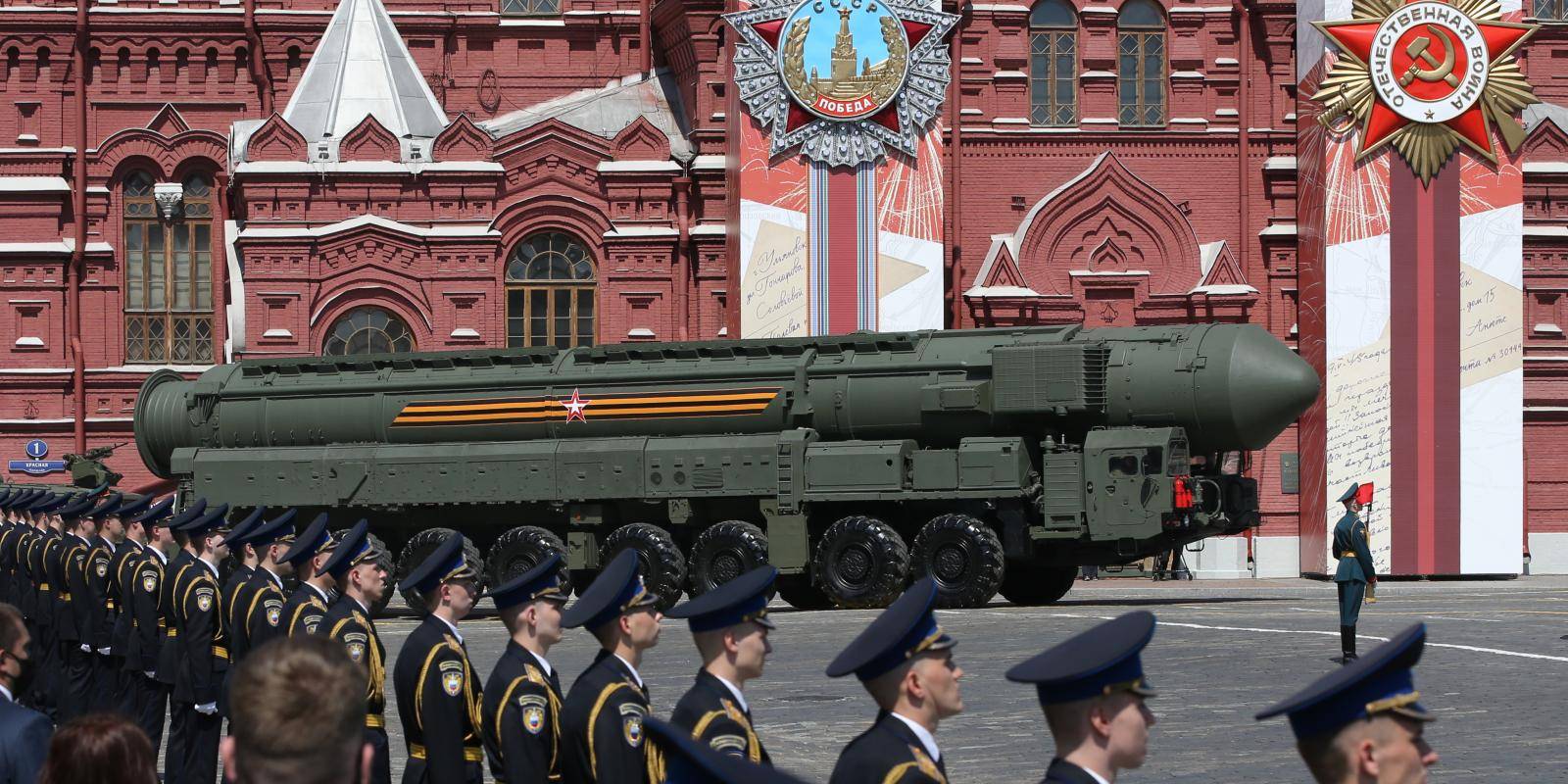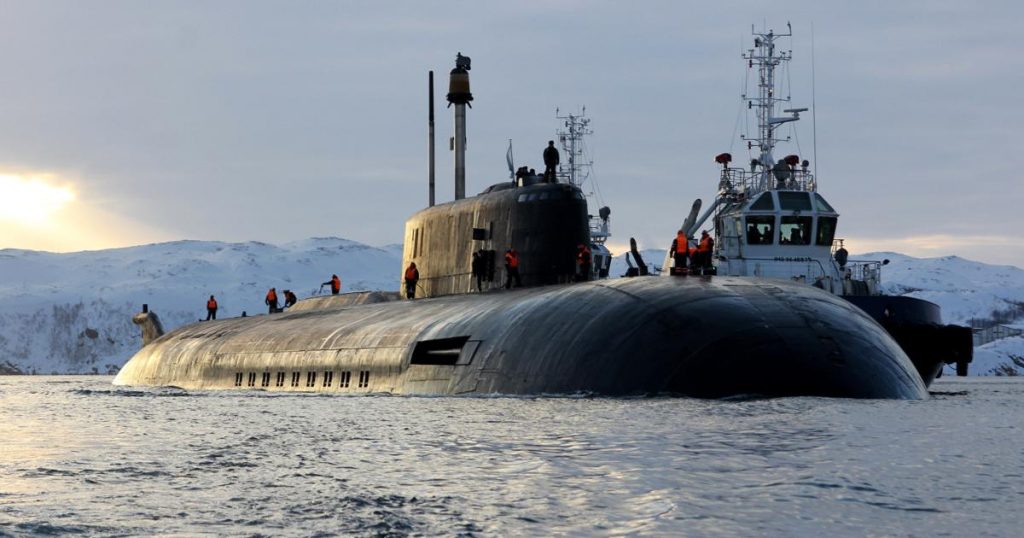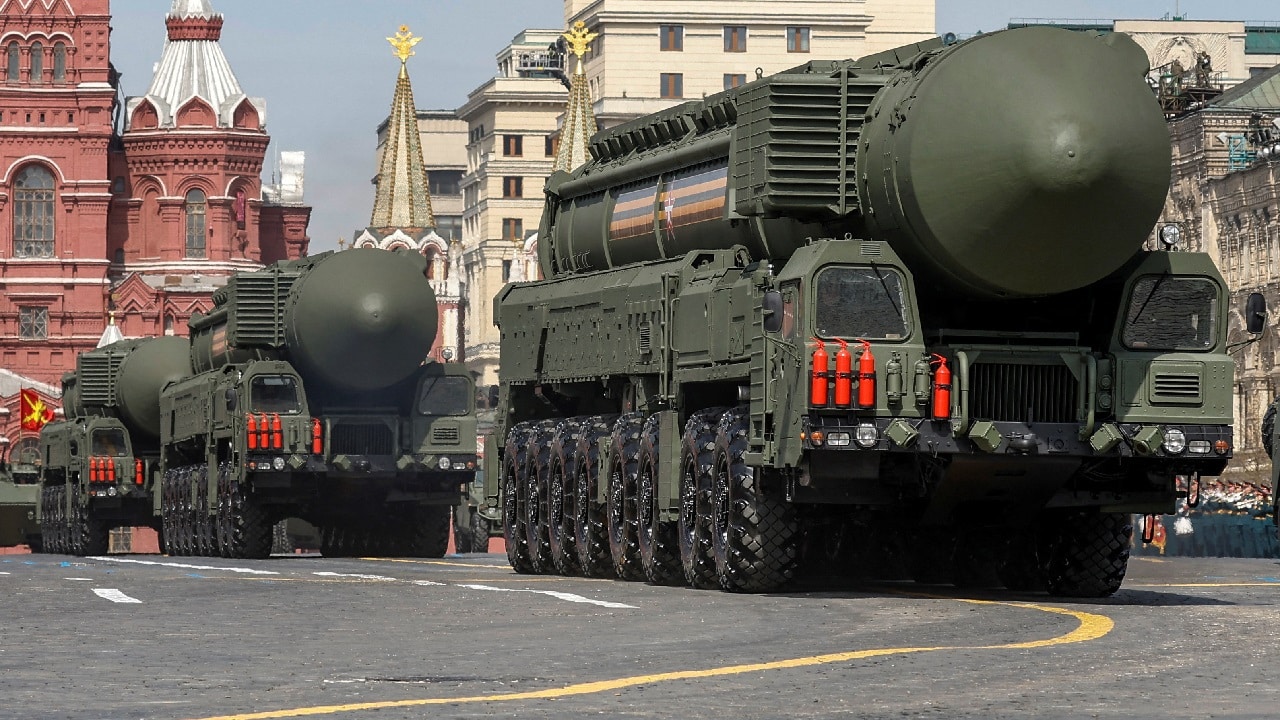Recently, it has been said that Russia is going to use nuclear weapons. One of the American politicians confirmed the risk of such a scenario. Russia needs to be aware of the consequences of using weapons that have only been used once. We remind you that nuclear weapons are supposed to scare enemies away, they are a defensive weapon.
Recently, it has been said that Russia is going to use nuclear weapons. One of the American politicians confirmed the risk of such a scenario. Russia needs to be aware of the consequences of using weapons that have only been used once.
We remind you that nuclear weapons are supposed to scare enemies away, they are a defensive weapon.
What could be a target of a nuclear attack ?
It is said in the media that Putin is going to hit Kyiv. The probability of attacking the sticks is quite small as it doesn’t make any deeper strategic sense. It is more likely to hit a group of soldiers or a reloading center. The largest transshipment center is in Poland, at the Rzeszow airport.

This is where all weapons for Ukraine arrive and from there they are distributed to the right places. But an attack on a NATO country could have serious consequences for Russia.
The reaction would be immediate. It is in Russia’s interest that NATO does not join the conflict because it could mean defeat for them. NATO is able to destroy the entire Black Sea fleet and the entire army that is located in Ukraine.
Recently, the submarine K-329 Bielgrod sailed from the base in the White Sea. A unit that can carry nuclear warhead torpedoes and trigger a radioactive tsunami. But remember that the torpedo can only hit targets located near the shore. So it is not possible to hit Kyiv with the Poseidon torpedo.

But there are also rockets launched from bombers, or short- and medium-range ballistic missiles. They are difficult to destroy and shooting would probably end in hitting the target.
Putin is not stupid and knows that nuclear weapons are the last resort. The consequences could be irreversible for Russia and it could end even in World War 3.
So far what Russia is doing is a demonstration of strength. They want to cause fear among European citizens. But let us hope that Russia does not reach for its final page.

A Call for Diplomacy and International Cooperation**
As we navigate the complex landscape of global politics, it’s imperative that we remain vigilant and proactive in preventing the devastating consequences of nuclear warfare. The recent speculation about Russia’s potential use of nuclear weapons is a stark reminder of the dire risks we face as a collective humanity.
In my professional experience working with international organizations and governments, I’ve seen firsthand the importance of dialogue and diplomacy in preventing conflicts from escalating into full-blown wars. In this context, it’s heartening to see experts like Frank Cottrell-Boyce, Children’s Laureate, emphasizing the role of libraries as spaces for human connection and community-building.
These are indeed challenging times, but we mustn’t lose sight of the values that have brought us together as a global community: empathy, compassion, and cooperation. As we face the very real threat of nuclear annihilation, let us not forget that our collective survival depends on our ability to work together towards peace and understanding.
Expert Insights
From my own experience working with international organizations, I’d like to offer some additional insights:
1. Deterrence is key: The use of nuclear weapons is often seen as a last resort, but it’s essential to recognize that their very existence serves as a deterrent against aggression.
2. International cooperation is crucial: In the face of uncertainty and risk, we must redouble our efforts to build bridges between nations and foster global understanding.
3. Prevention is better than reaction: By engaging in proactive diplomacy and conflict resolution strategies, we can minimize the risks associated with nuclear warfare.
Conclusion
As we navigate this treacherous landscape, let us not lose sight of our shared humanity and the values that have brought us together as a global community. By working towards peace, understanding, and cooperation, we can create a brighter future for ourselves and generations to come.
In the words of Frank Cottrell-Boyce, “Libraries are spaces where we bump into each other and make acquaintance.” Let us use this wisdom to guide our actions in the face of uncertainty, and to strive towards a more peaceful and hopeful world.
I strongly disagree with the author’s assertion that Russia will use nuclear weapons as a last resort. While it’s true that nuclear warfare has only been used once in history, I believe that Putin is more cunning than we give him credit for.
As someone who has worked in international relations, I can confidently say that Russia has been playing a cat-and-mouse game with NATO for years, and they’re not going to back down now. The author’s argument that Russia needs to be aware of the consequences of using nuclear weapons is misguided – Putin knows all too well what he’s doing.
In fact, I believe that Russia has been planning this move carefully, using a combination of cyber warfare and propaganda to demoralize Ukraine and its allies. The recent submarine deployment in the White Sea is just one example of their preparations.
But let’s not forget that NATO is also not without its capabilities. If Russia were to launch a nuclear attack on a NATO country, the response would be swift and merciless. As the author mentioned, NATO has the capability to destroy the entire Black Sea fleet and Russian army in Ukraine – but what about beyond? What about Moscow itself?
I’d argue that Putin’s biggest fear is not the consequences of using nuclear weapons, but rather the consequences of losing the war altogether. And if I were him, I wouldn’t hesitate to use every trick in the book to turn the tide.
So, to all you optimists out there who are hoping for a peaceful resolution to this conflict – I’m afraid we’re not quite there yet. But here’s what I’d advise:
In short, I don’t think Russia will use nuclear weapons as a last resort. I think they’ll do whatever it takes to win, and that includes risking everything. So let’s be realistic about our expectations, and start thinking about what we can do to prevent a disaster from unfolding.
Fernando, your comment has brought back memories of the Cold War era when the world was on the brink of nuclear war at all times. The cat-and-mouse game between Russia and NATO was indeed a defining feature of that period.
As I reflect on your points, I am reminded of the famous phrase “the devil is in the details.” While it’s true that Putin has been cunning and calculating in his actions, we must also consider the human factor involved. The consequences of nuclear war are so catastrophic that even the most hardened leaders might hesitate before pulling the trigger.
However, your comment also highlights a crucial aspect of this conflict: the lack of diplomacy between Russia and NATO. The recent submarine deployment is indeed a concerning development, but it’s essential to understand the context behind these actions.
As you noted, Putin’s biggest fear might not be the consequences of using nuclear weapons but rather losing the war altogether. This fear can drive even the most rational leaders to make irrational decisions.
In light of this analysis, I’d like to add that NATO should indeed prepare for the worst-case scenario by bolstering its defense strategies. But we must also consider the potential risks and consequences of such actions.
Fernando, your comment has sparked a thought-provoking discussion that reminds us of the complexities and uncertainties of international relations. While it’s easy to get caught up in the rhetoric and speculation surrounding this conflict, we must remain vigilant and focused on finding a diplomatic solution before it’s too late.
One final point I’d like to make is that history has shown us that even the most seemingly insurmountable conflicts can be resolved through diplomacy and compromise. Let’s not forget the Helsinki Accords, which brought an end to hostilities between the United States and Russia during the Cold War.
As we move forward, let’s keep in mind the importance of finding common ground and working towards a peaceful resolution that benefits all parties involved.
What a delightful article, brimming with wit and intelligence! I completely agree with the author’s assessment – using nuclear weapons is akin to playing with fire, and Putin knows it. The consequences of such an action would be catastrophic, not just for Russia but for the entire world. It’s a recipe for World War 3, if you will.
As someone who’s spent years studying military strategy and geopolitics, I’d like to add a few extra expert tips to this discussion.
Firstly, let’s talk about the probability of an attack on Kyiv. While it’s true that hitting a city would be strategically senseless, I wouldn’t entirely rule out the possibility. Putin is known for his unpredictability, and he might just decide to take a gamble on a high-stakes target like Kyiv.
Secondly, regarding the reaction from NATO – it’s precisely as the author says: immediate and severe. NATO has an impressive military arsenal at its disposal, and Russia knows this all too well. A nuclear attack would essentially invite NATO to destroy the entire Black Sea fleet and army in Ukraine – a prospect that would be utterly devastating for Russia.
Lastly, let’s discuss those Poseidon torpedoes. While it’s true they can cause a radioactive tsunami, I’d like to add a bit of humor here: if Putin decides to use them, he might just end up wiping out his own country’s coastline in the process!
All joking aside, this is no laughing matter. The world needs to be on high alert and prepared for any eventuality. To Russia’s leaders, I say this: think twice before taking such drastic measures – the consequences are too dire, and your citizens deserve better.
To everyone reading this article, let’s all hold our breaths and hope that reason prevails. This is no time for politics; it’s a matter of global security and stability.
Well done, author! Your wit and insight have made this article an absolute pleasure to read.